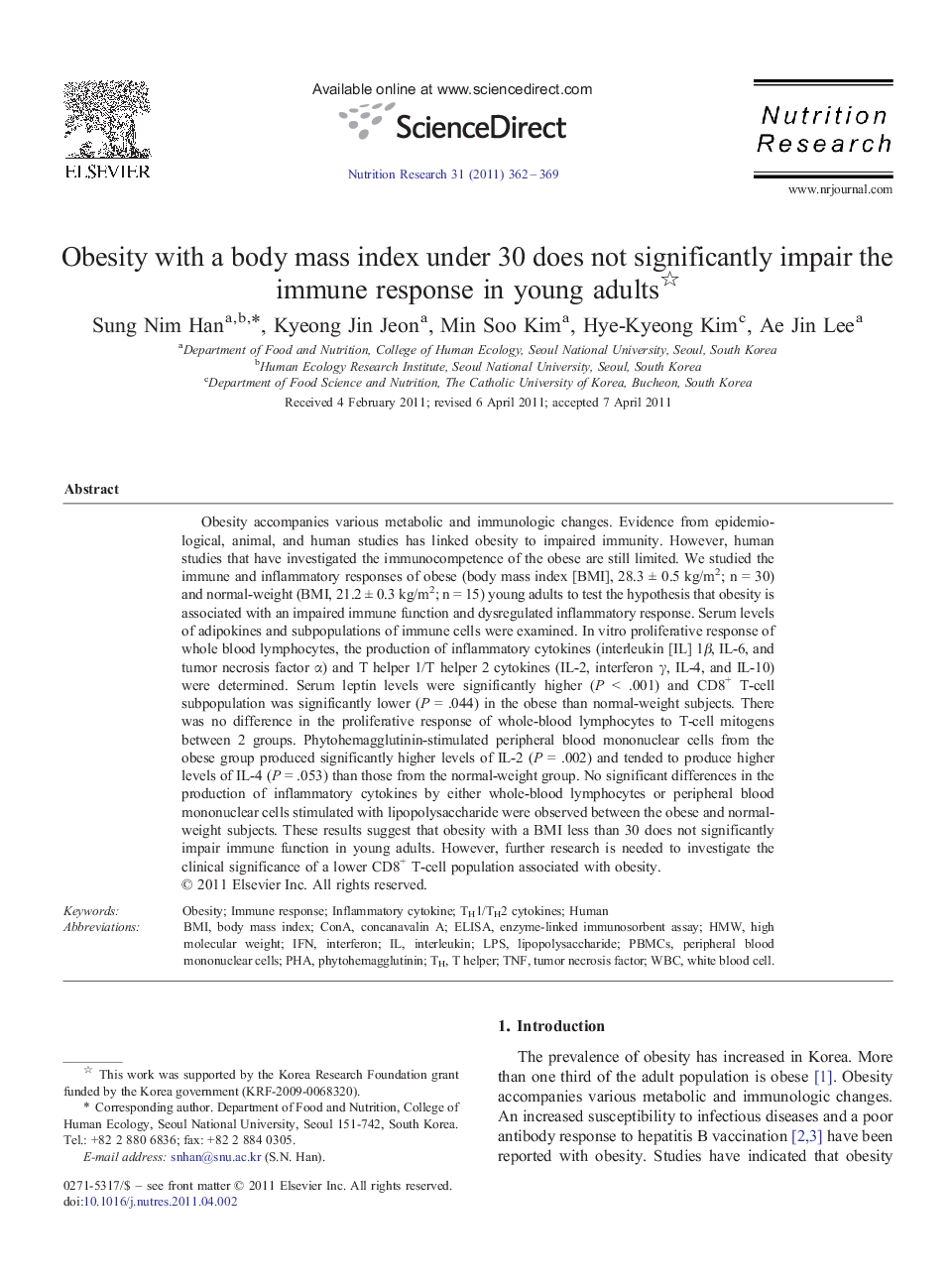| کد مقاله | کد نشریه | سال انتشار | مقاله انگلیسی | نسخه تمام متن |
|---|---|---|---|---|
| 2809274 | 1158030 | 2011 | 8 صفحه PDF | دانلود رایگان |

Obesity accompanies various metabolic and immunologic changes. Evidence from epidemiological, animal, and human studies has linked obesity to impaired immunity. However, human studies that have investigated the immunocompetence of the obese are still limited. We studied the immune and inflammatory responses of obese (body mass index [BMI], 28.3 ± 0.5 kg/m2; n = 30) and normal-weight (BMI, 21.2 ± 0.3 kg/m2; n = 15) young adults to test the hypothesis that obesity is associated with an impaired immune function and dysregulated inflammatory response. Serum levels of adipokines and subpopulations of immune cells were examined. In vitro proliferative response of whole blood lymphocytes, the production of inflammatory cytokines (interleukin [IL] 1β, IL-6, and tumor necrosis factor α) and T helper 1/T helper 2 cytokines (IL-2, interferon γ, IL-4, and IL-10) were determined. Serum leptin levels were significantly higher (P < .001) and CD8+ T-cell subpopulation was significantly lower (P = .044) in the obese than normal-weight subjects. There was no difference in the proliferative response of whole-blood lymphocytes to T-cell mitogens between 2 groups. Phytohemagglutinin-stimulated peripheral blood mononuclear cells from the obese group produced significantly higher levels of IL-2 (P = .002) and tended to produce higher levels of IL-4 (P = .053) than those from the normal-weight group. No significant differences in the production of inflammatory cytokines by either whole-blood lymphocytes or peripheral blood mononuclear cells stimulated with lipopolysaccharide were observed between the obese and normal-weight subjects. These results suggest that obesity with a BMI less than 30 does not significantly impair immune function in young adults. However, further research is needed to investigate the clinical significance of a lower CD8+ T-cell population associated with obesity.
Journal: Nutrition Research - Volume 31, Issue 5, May 2011, Pages 362–369